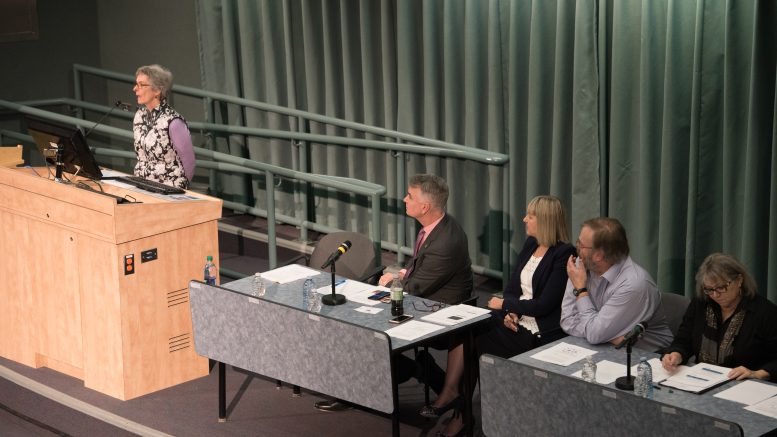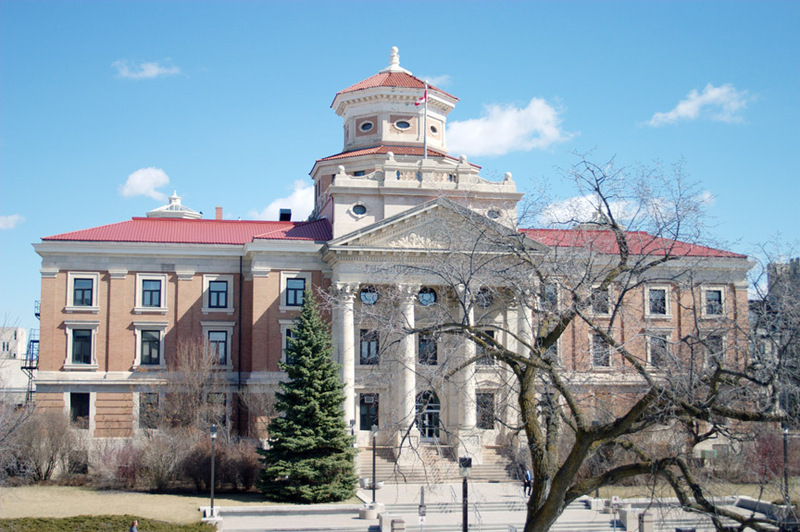Administrators of the Rady Faculty of Health Sciences (RFHS) outlined their strategic priorities at a town hall meeting Jan. 19, charting the faculty’s course for the next several years.
Hosted in the Gaspard Theatre on the Bannatyne campus, the presentation summarized the faculty’s performance and set future goals regarding the department’s academic affairs, educational approaches, continuing competency and assessment programs, research, and meeting the call of the Truth and Reconciliation Commission of Canada’s action plan.
Dean and vice provost Brian Postl prioritized developing a strong and open relationship with Manitoba’s Progressive Conservative government and talked about how the university’s new budget model might affect the faculty.
The university announced in the fall it is planning on moving away from its current budget model toward a more decentralized framework.
Under the current model, revenues are received centrally and then allocated into units across the university. Under the more decentralized proposal, according to a university release, faculties will retain a majority of their revenue but forward some toward a central pool.
“It is a new model where the money flows to the faculties and then the faculties, in effect, share the costs of the university and pay into a pool that supports the broader university,” Postl said in an interview Monday.
He added that the new framework will be rolled out over the next three years, so individual faculties still have time to adapt to and plan for the changes.
“Many universities have moved to this model and I think most people think that it is a much more transparent model than the one that has been in place the last several decades,” he said. “So I think it’s a step forward and we’ve got to get it started and then learn how it works and then use its levers to try and improve our teaching and research.”
The presentation noted that there is a renewed focus on interprofessional education and innovation across the health faculty, including the establishment of new research chairs.
Postl said the faculty is working to improve student wellness supports and noted that research funding got a shot in the arm with new grants that will boost investment by 16 per cent over their term.
Postl said that after a myriad of consultations – ranging from a review of strategic plans to examining resource-planning priorities and consultations with college deans and faculty vice deans – a draft strategic framework was created.
The draft, which was reviewed by the health faculty’s dean’s council, will serve as a guideline and define the priorities for the next five years.
The RFHS strategic framework incorporated the shared vision, values, and strategic priorities of all the colleges in the faculty: dentistry, medicine, nursing, pharmacy, and rehabilitation sciences.
The six shared strategic priority areas identified by Postl include education and learner experience; research; teaching and the working environment; community, partnerships, and collaboration; Indigenous health and achievement; and resource base investment.
He noted that the faculty is looking at expanding its online programming, which includes online courses offered through the faculty of human ecology. He said the health faculty is looking at expanding continuing education and professional development programs and education surrounding Indigenous issues to online formats.
Postl added that the Indigenous Institute of Health and Healing is working its way through final senate approvals but should be ready to launch in the coming months.
“Achieving these priorities will allow the faculty to realize its shared vision to be a leader in innovative research and health professional education that supports collaborative practice,” Postl’s presentation reads.





